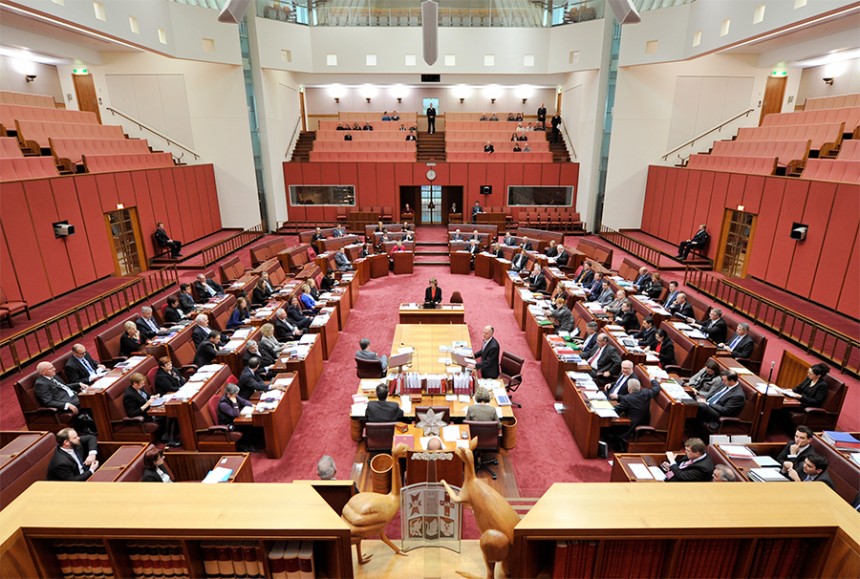Senate passes voting reforms, paves way for early election

CANBERRA – The Senate has passed voting reforms after a
marathon session lasting over 28 hours, clearing the way for Prime Minister
Malcolm Turnbull to dissolve both houses of parliament and call an early
election to end a hostile Senate.
Independent and minor party senators elected at the last
election in 2013 have stalled key aspects of the government’s agenda, including
changes that would make higher education and health care more expensive and
limit access to welfare.
The Senate voting reforms would make it harder for smaller
parties to enter parliament through vote sharing deals.
Mr Turnbull is now seen as likely to opt for a rare double
dissolution election, which sees both houses of parliament face voters, arguing
that it will clear the Senate of obstructionists and allow long-stalled
economic reforms.
The debate on the voting reforms began on Thursday morning
in the Senate and went well into Friday as lawmakers – at least one dressed in
pyjamas – employed delaying tactics aimed at breaking their opponents’ will.
The reforms were eventually passed and parliament rose
until May when the annual budget is due.
“It’s a reform which will help ensure that future
Senate election results truly reflect the will of the Australian people,”
Finance Minister Mathias Cormann told the Senate.
Mr Turnbull has consistently led opinion polls since he
came to power last year and his ruling Liberal-National coalition is leading
the opposition Labor party comfortably in recent polls. But there are signs
Turnbull’s honeymoon period as prime minister may be ending, prompting election
speculation.
An election is due by January 2017, but has been expected
to be called for the second half of 2016.
Under Australia’s constitution, Mr Turnbull faces a May 11
deadline to call a double dissolution election and the earliest it could be
held is June.
In order to call such a poll, he needs a piece of
legislation twice defeated by the Senate as the trigger.
He has a labour bill which has been defeated once, but
would need to recall parliament early to May 3 to allow time to reintroduce the
labour bill and have it voted on by the Senate before the May 11 deadline.
But to recall parliament early, Mr Turnbull must bring
forward the May 10 budget as an excuse.
– Reuters



